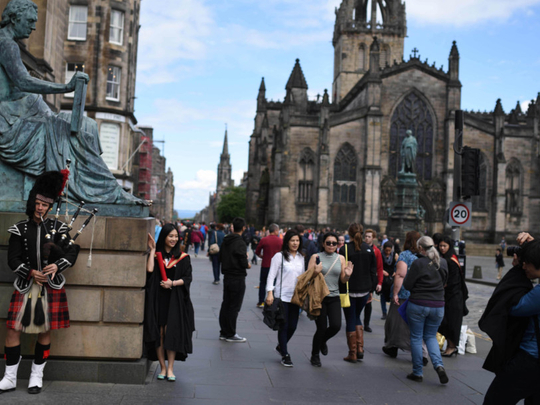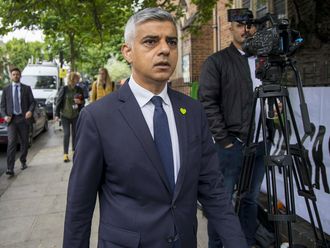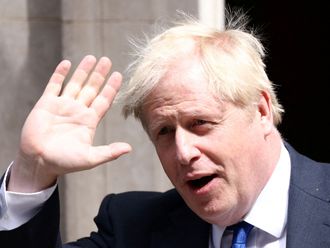
LONDON: Scottish First Minister Nicola Sturgeon on Sunday vowed to protect Scotland against the “devastating” fallout of Brexit and hinted that her government may use legal means to try to block Britain’s departure from the European Union (UN).
Sturgeon said the UK that Scotland voted to remain a part of in a 2014 independence referendum “does not exist any more” after Thursday’s referendum to leave the EU.
“What’s going to happen with the UK is that there are going to be deeply damaging and painful consequences ... I want to try and protect Scotland from that,” Sturgeon told the BBC’s Andrew Marr Show.
In a round of broadcast interviews, she also said it was possible that the Scottish parliament may have to give its consent to laws to extricate Britain from the EU.
Asked whether she would consider asking Scottish lawmakers not to give that consent, she replied: “Of course.”
Sturgeon leads the pro-independence Scottish National Party (SNP), which has 63 out of 129 seats in the devolved parliament, as well as 54 out of 650 seats in Britain’s House of Commons lower house of parliament.
Britain as a whole voted by 52 per cent to 48 per cent to leave the EU, but Scotland voted strongly for Britain to remain — by 62 per cent to 38 per cent.
Within hours of the result on Friday, Sturgeon said a new independence referendum within two years was now “highly likely” and on Saturday, she said Scotland was seeking “immediate discussions” with European leaders.
Two new polls taken after Thursday’s vote showed a majority of Scots would now support independence.
A Panelbase survey for the Sunday Times found 52 per cent of respondents now wanted to break with the rest of Britain, while 48 per cent were opposed.
In a poll for Scotland’s Sunday Post, ScotPulse found that 59 per cent would vote for independence.
Sturgeon Sunday warned that the consequences of dragging Scotland out of the European Union “against [its] will” would be “devastating”.
Asked what Scotland’s negotiating position with Brussels could be and whether it would have to join the EU as a new member state, she said: “This would not be a decision about Scotland leaving ... this would actually be a decision about Scotland staying.”
“Our argument is that we don’t want to leave. It’s not that we want to leave and get back in,” she said.
She also cautioned any future British prime minister against vetoing a new Scottish independence vote.
‘Successor state’
“I think people in Scotland would find that completely unacceptable,” she said.
Andrew Scott, a professor of European Union studies at the University of Edinburgh, said one way in which Scotland could remain in the EU would be to vote for independence before Britain’s departure is finalised.
It could then define itself as a “successor state” and effectively inherit Britain’s EU membership, including the budget rebate, he argued.
A second option would be for an independent Scotland to leave the EU and then reapply while in the meantime joining the European Economic Area, he said. “I think the European Union would have no reason to reject Scotland’s participation or continuing membership of the EU,” Scott added. EU officials have cautioned in recent days that Scotland may have to apply like other new member states, which are required to adopt the Euro. In the streets of Edinburgh, many people backed independence.
Chris Dougray, a financial adviser, said he was concerned about the impact on investment in Scotland if it is forced out of the EU. “If it meant that we stay in the European Union, I would vote for independence, yes,” he said.











